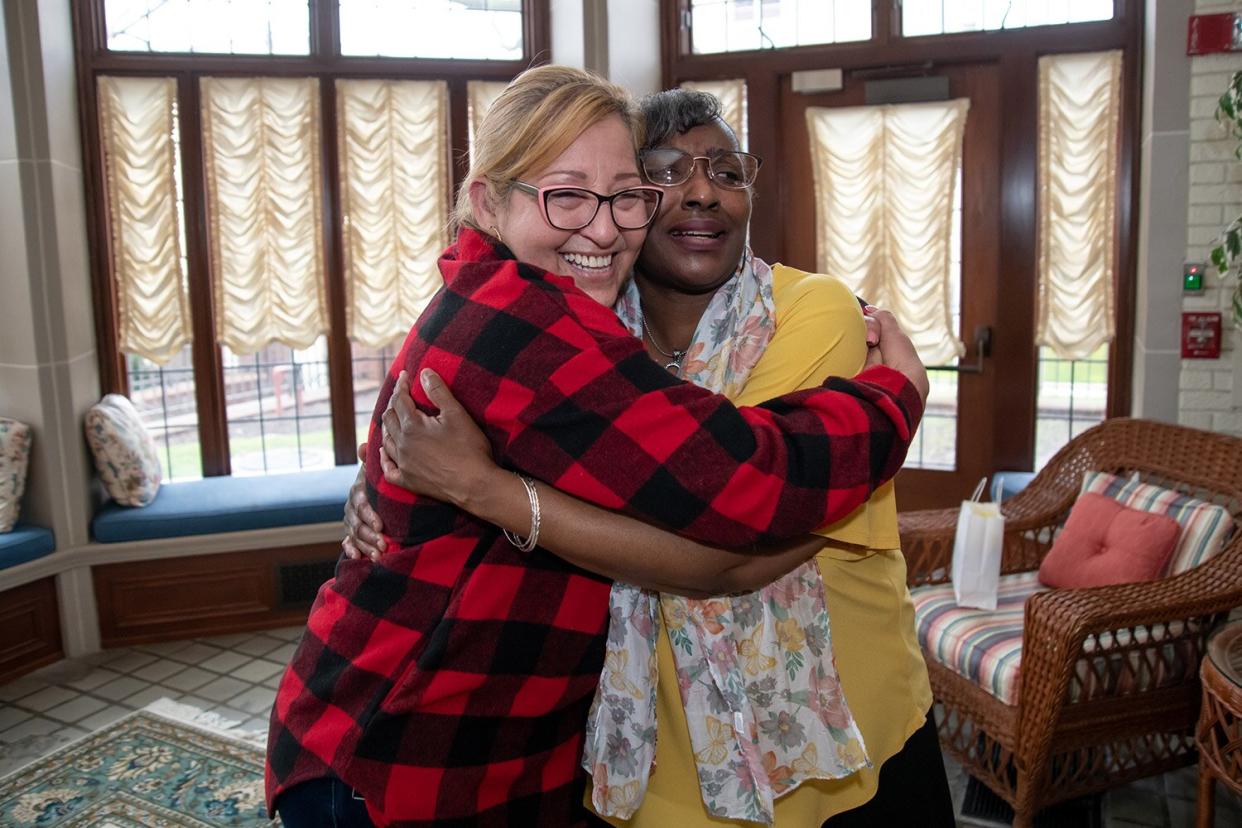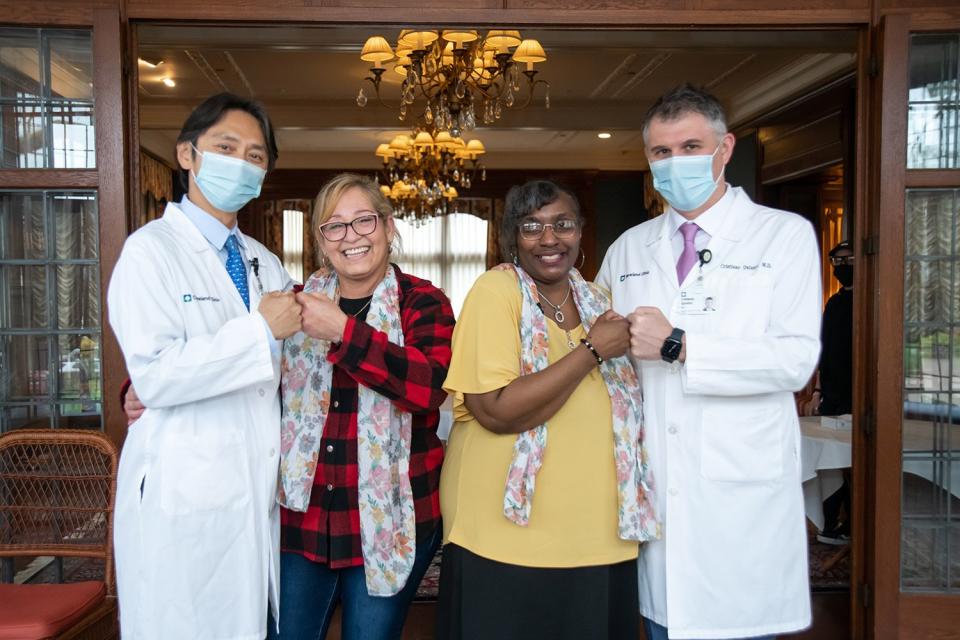'Split-Liver Sisters' Meet for the First Time: 'We Feel Connected Because We Share a Piece of Ourselves'

courtesy Cleveland Clinic
Maria Contreras received a call in July 2020 that would change her life.
"I will never forget the day my coordinator said they found a liver donor for me," says Contreras, 53. "My heart started beating so hard — I had been waiting for such a long time."
It had been six long years since the Cleveland mom of 4 first started feeling painful itching on the palms of her hands and bottom of her feet, which led to a liver biopsy and diagnosis of cirrhosis. In 2019 she almost died in the ICU when she needed a stent in her heart — her body could barely handle it.
Finally, on July 1, 2020, she went in for her liver transplant surgery at the Cleveland Clinic. "Right before they took me into the operating room, I looked up and my doctor, Dr. Hashimoto, told me everything was going to be alright. He gave me a fist bump, which made me feel confident — now I do it every time I see him."
The operation was successful and she was released two weeks later, one day before her birthday. "It was the perfect present," says Contreras, who lives in Cleveland.

courtesy Cleveland Clinic From left: Koji Hashimoto, MD, PhD; Maria Contreras; Monica Davis; Cristiano Quintini, MD
Contreras wasn't the only person to benefit from that particular liver: Monica Davis was given the other portion in what's known as a split liver transplantation, an unusual procedure that began in Germany in the 1980s.
RELATED: 1-Year-Old Boy Receives Liver Transplant: 'I Was Emotional,' Says His Mother
"No other liver transplant technique can save multiple lives from one donor," says Koji Hashimoto, MD, PhD, Director of Liver Transplantation at Cleveland Clinic. "While splitting a liver for a child and adult is not uncommon, it is very rare in splitting for two adults in a case like this," he explains. "In an adult-adult combination, we split a liver into 40% and 60%, which generally makes donor surgery more complex and technically difficult."
Initially, Davis wasn't open to the idea of a transplant. When she found out she had cirrhosis related to chronic inflammation of the bile ducts and her doctor suggested she get on the transplant list, she said no.
"I didn't want a transplant because my 3 children were adults and they didn't need me, and I didn't think my husband would need me, either," she says. "I was giving up in the idea of life, of being needed."
It took her a few years to change her mind — "I had my faith regenerated" — but ultimately she realized she still had a purpose in living. Her transplant was performed at the Cleveland Clinic by Cristiano Quintini, MD, and it was successful: "I feel 100 percent better with this new liver," says Davis, who lives in Elyria, Ohio. "It's been wonderful for my health."
RELATED: Daughter Gives Mom 'Most Amazing' Mother's Day Gift by Saving Her Life with Liver Donation
Although the women both wanted to meet each other — "We share a piece of each other and feel connected," says Contreras — privacy laws made the process difficult, and the pandemic stalled it as well. Finally, in April 2022, they came together face-to-face. "I started crying because I had been waiting for this moment for a long time," she says. "In my heart, I was so happy."

courtesy Cleveland Clinic
It was a profound experience for Davis as well. "We were hugging and dancing around," she says. "I had been praying for my transplant sister every day, just as I had been praying for my donor family," she says. "I am very grateful."
Hashimoto says there are many factors that make a transplant like this successful: "Appropriate donor-recipient size matching is crucial," he explains. "To transplant enough volume of the donor's liver, it is essential to choose a large donor and a small recipient because the size of a donor's liver is already half."
Now the two women are trying to figure out how to pay it forward.
Says Davis, laughing, "I asked my social worker, I said, 'I know this is going to sound crazy, but if something were to happen to me, would I be able to re-donate my liver?' When she said no, I said, well, then I'll have to think of something else to donate! My corneas?"

